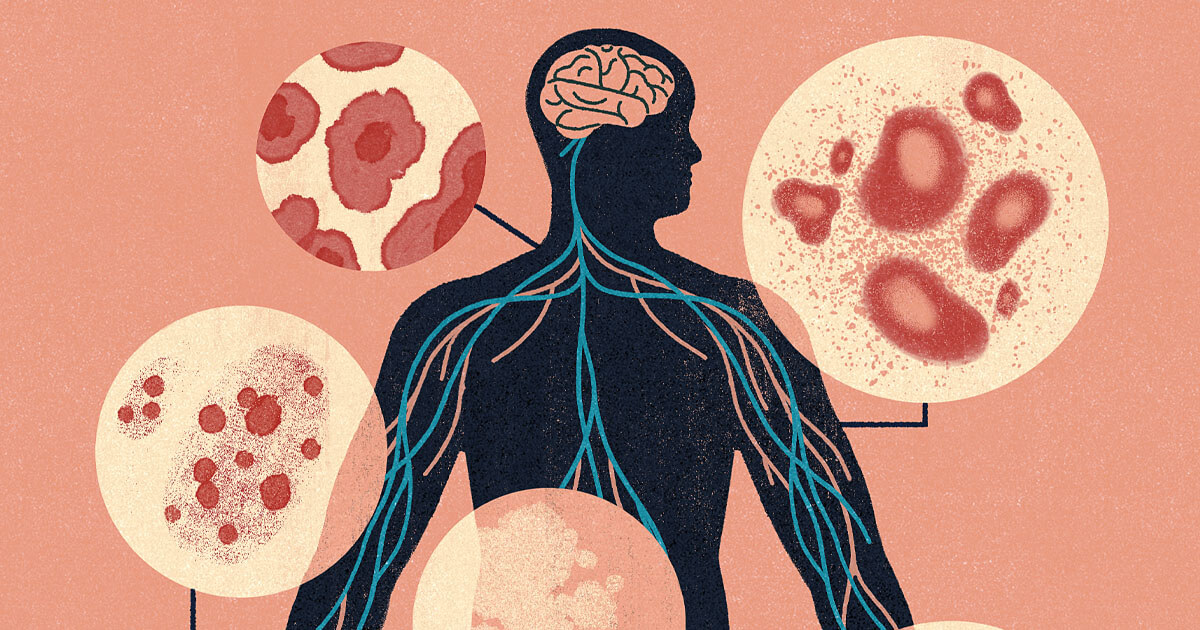What do walking a tightrope over a canyon, swimming with sharks, and ignoring high blood pressure have in common? They are all risky behaviors. That's the message behind Mind Your Risks!—a new public health campaign from the National Institute of Neurological Disorders and Stroke (NINDS) that has started rolling out in magazine ads and shopping mall displays.
"Failing to manage high blood pressure is linked to a risk of both strokes and cognitive decline, such as dementia, so ignoring high blood pressure is a risky act," says Marian Emr, director of the Office of Communications and public liaison at the NINDS.
Danger of Dementia
In focus groups with people ages 45 to 65, the NINDS staff found that many were aware of a link between high blood pressure and stroke, but few knew about the association between high blood pressure and dementia.
After reviewing the scientific literature, NINDS found a positive association between high blood pressure and cognitive impairment in many epidemiologic studies. "The evidence is strongest with midlife hypertension," says Walter Koroshetz, MD, FAAN, director of the NINDS.
A 2014 study in Neurology of more than 4,000 people, who were screened for vascular and cognitive function and brain changes on magnetic resonance imaging scans at midlife (on average, at age 50) and later in life (around age 76) as part of the Age, Gene/Environment Susceptibility (AGES)-Reykjavik Study, found an association between a history of hypertension in midlife and cognitive decline in older age.
Motivated to Change
Emr says that the NINDS focus groups also revealed that once people "learn of the link, they are motivated to know and do more." The campaign's key takeaways, she says, are simple: Dementia and stroke are more likely to affect people with high blood pressure, so don't take unnecessary risks—and keep your blood pressure under control.
Online Resource
The campaign's website, mindyourrisks.nih.gov, includes links to studies and tips for managing high blood pressure such as quitting smoking, staying active, and eating healthy. The campaign's messages will be placed in some medical journals as well, says Emr, to encourage doctors to share the information with their patents.
"I think [the campaign is] fantastic," says Marion S. Buckwalter, MD, PhD, associate professor of neurology at the Stanford University Medical Center. "Keeping blood pressure under control will help prevent dementia as well as other deadly consequences of hypertension, like strokes and heart attacks."

